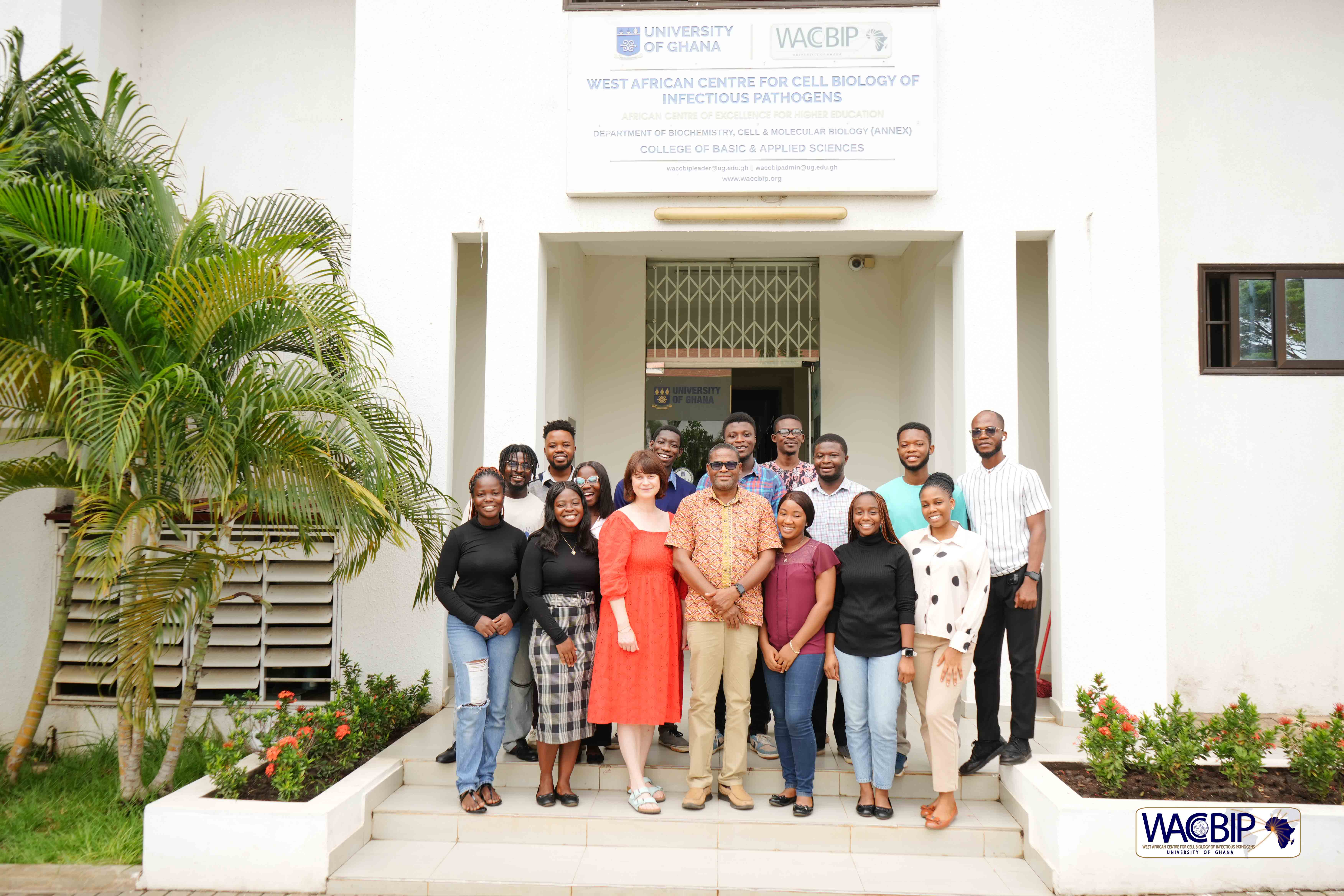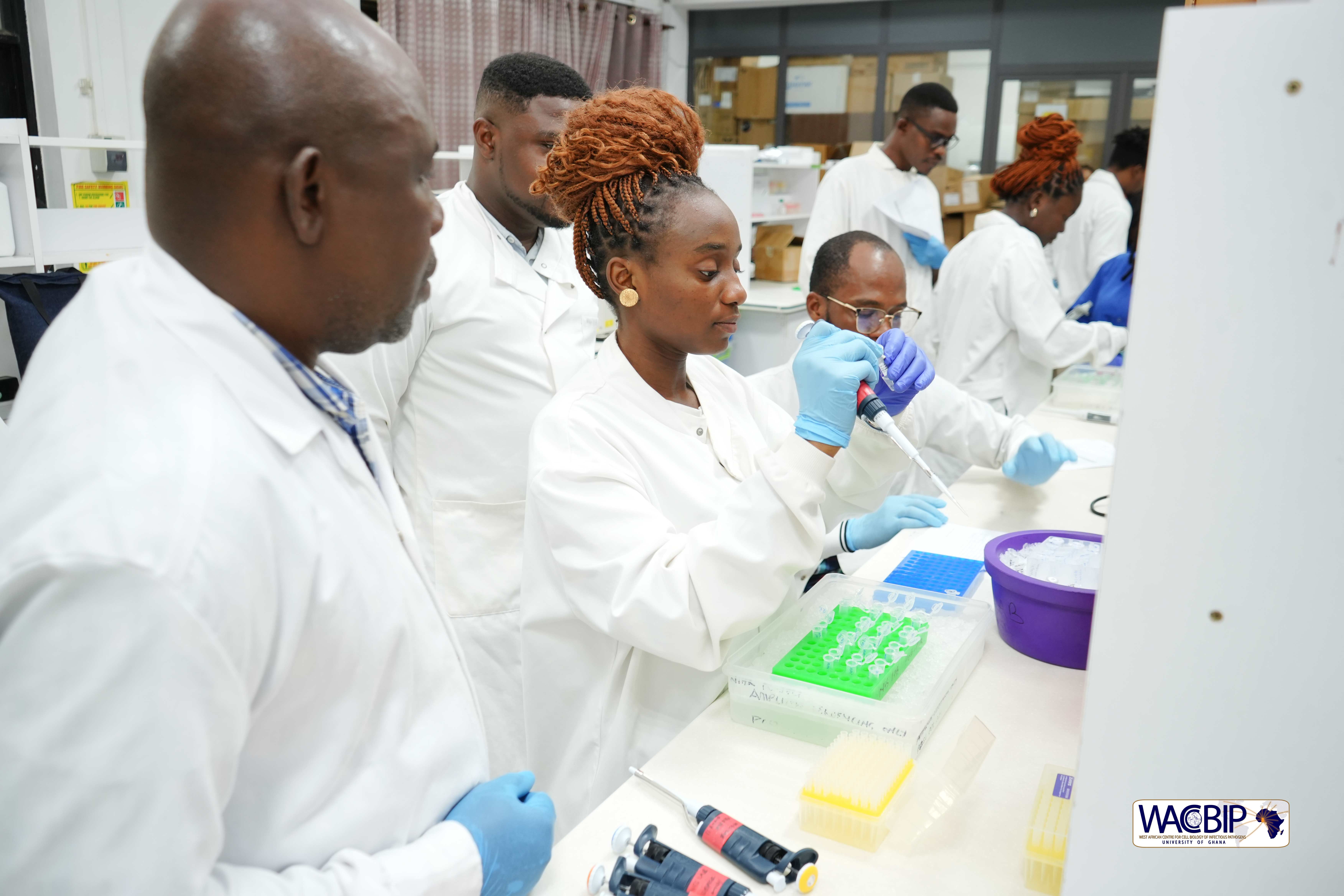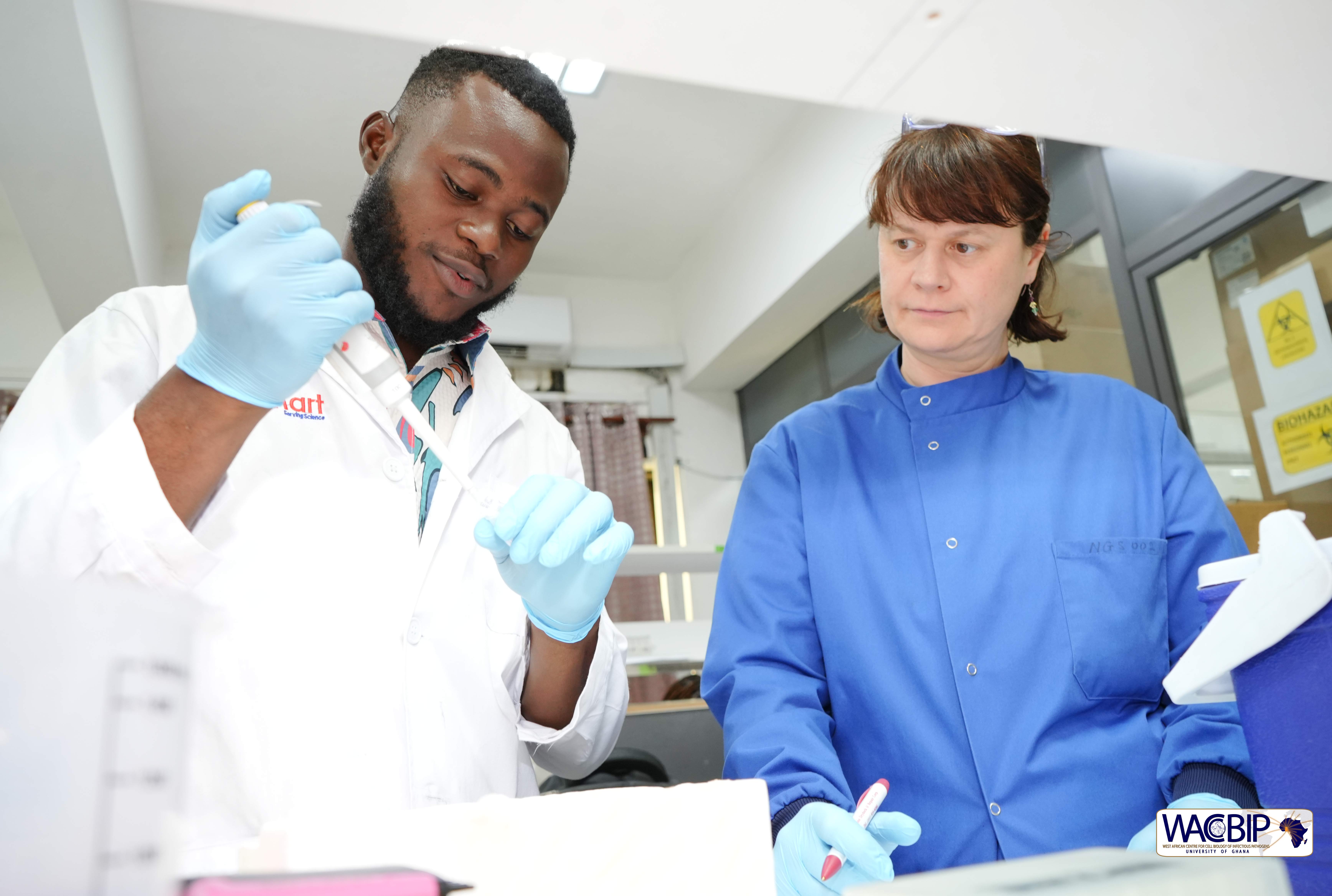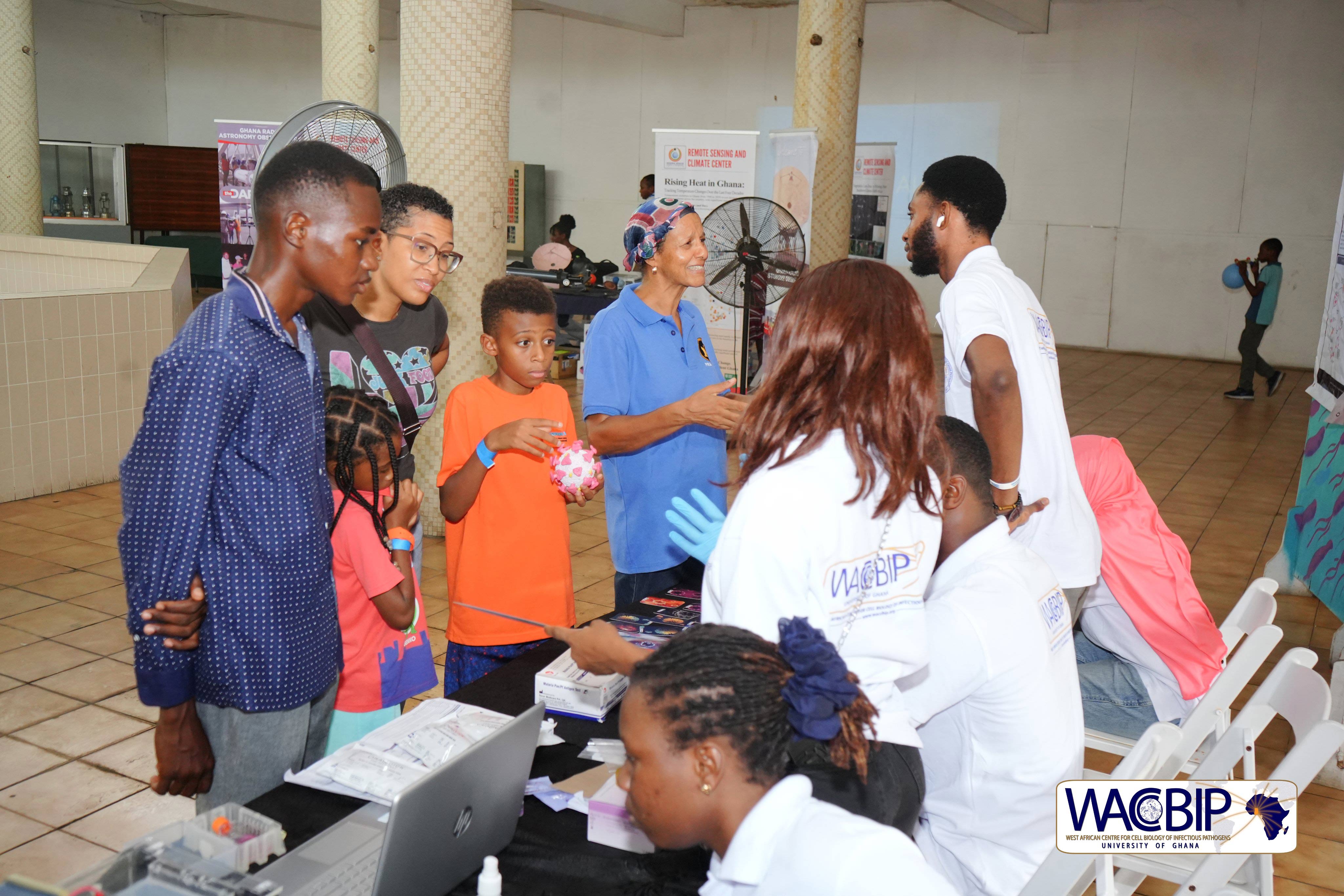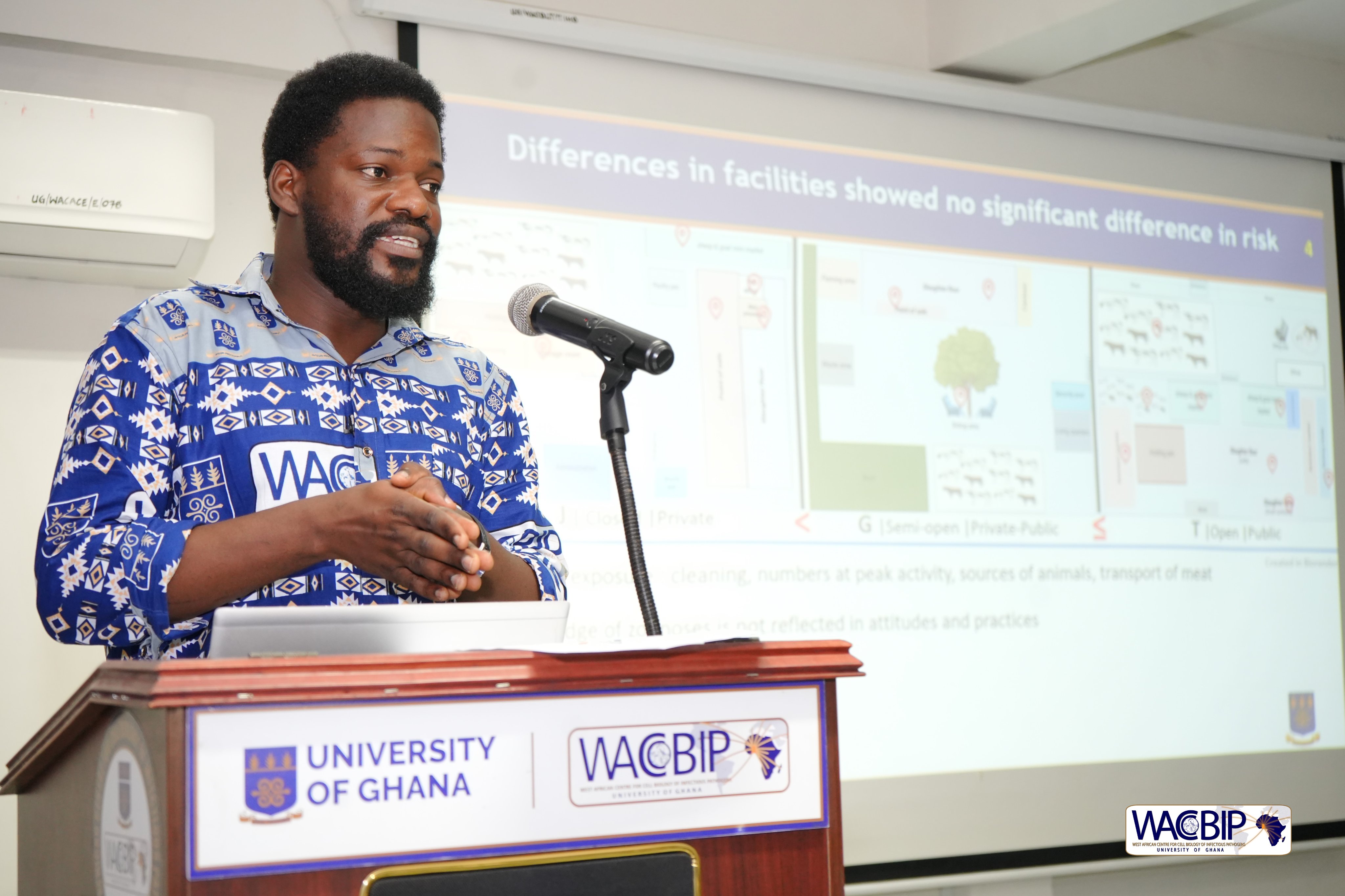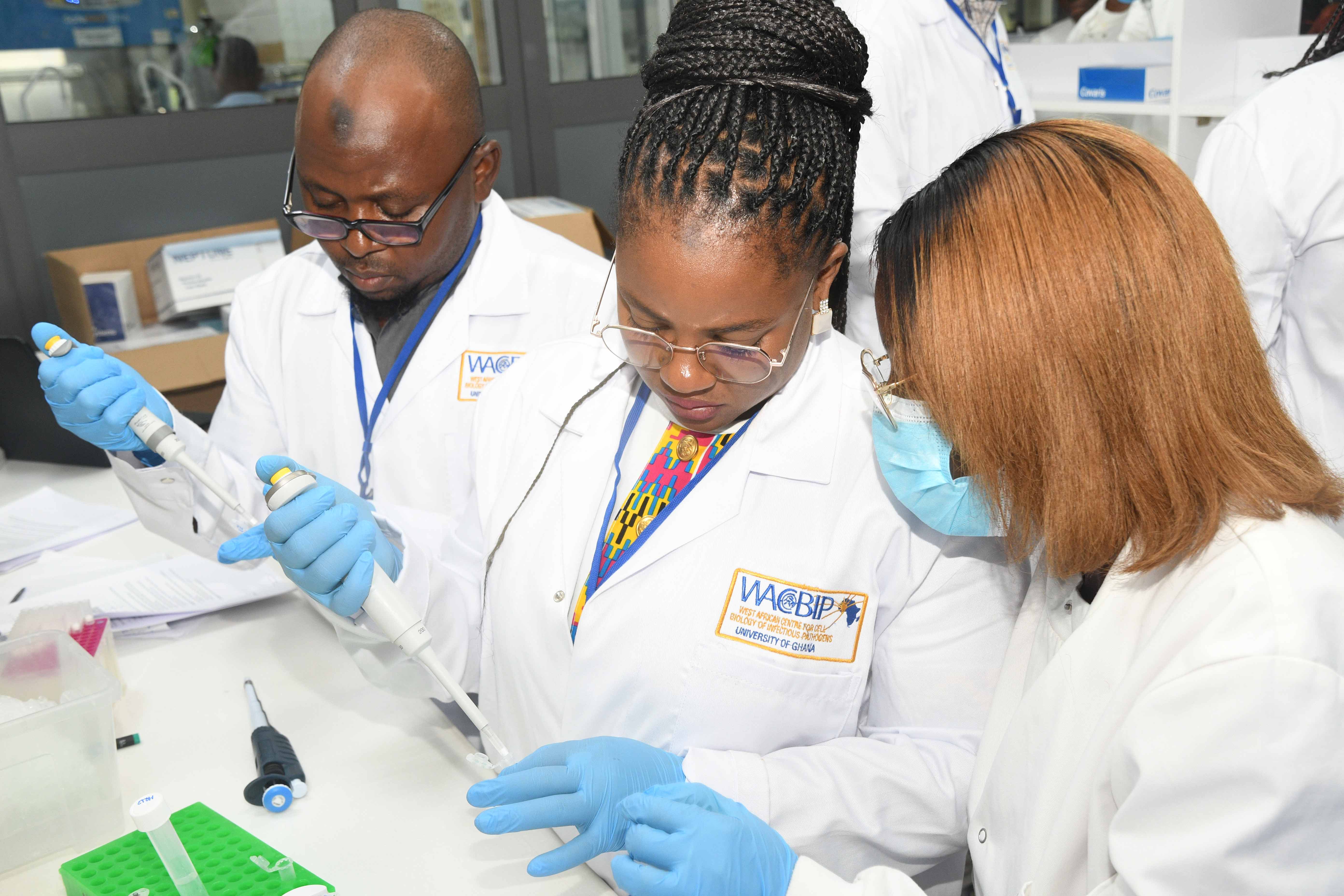The West African Centre for Cell Biology of Infectious Pathogens (WACCBIP) at the University of Ghana concluded a two-week intensive capacity-building workshop on varcoding, a cutting-edge molecular fingerprinting method used to monitor the diversity of var genes in Plasmodium falciparum, the parasite responsible for the most severe form of malaria.
The workshop, organised by Dr. Lucas Amenga-Etego (WACCBIP) and facilitated by Dr. Kathryn Tiedje, a Research Fellow in Prof. Karen Day’s lab, from The Peter Doherty Institute for Infections and Immunity at The University of Melbourne, Australia, brought together molecular biologists and malaria researchers from across Ghana. This workshop aimed to build local capacity using the varcoding method, to enhance understanding of P. falciparum population diversity and strengthen molecular surveillance efforts in malaria-endemic regions, like Ghana. This workshop was supported by the “Integrated Malaria Parasite and Vector Surveillance in Ghana (IMPAVES)” project funded by the Gates Foundation and The NIHR Global Health Research Group on Establishing Regional Hubs for Genomic Surveillance in West Africa, at the Wellcome Sanger Institute supported by the National Institute of Health and Care Research, UK.
Participants received comprehensive training on both the theoretical and practical aspects of the varcoding method. In the first week, sessions covered genetic markers for Plasmodium surveillance, primer design and testing, PCR design, database setup, and data organisation. Participants also undertook necessary optimisation steps in the wet lab for working with P. falciparum clinical isolates and control strains.

The second week focused on downstream techniques, including PCR purification, PicoGreen assays for DNA quantification, and isolate pooling to generate the pools for targeted amplicon sequencing. Presentations this week provided an overview of how the varcoding method is being used to monitor the P. falciparum reservoir in response to malaria control interventions in Bongo District, northern Ghana (known as the Malaria Reservoir Study). Additional presentations were focused on wet-lab techniques, as well as introducing the downstream bioinformatic varcoding pipelines required to go from raw to cleaned sequencing data for analysis.

Finally, during the last week, participants engaged in journal club presentations focused on the varcode method to enhance their ability to critically engage with scientific literature and communicate their findings effectively.
Following the workshop, participants expressed enthusiasm about the skills gained and the broader implications of their training.
A participant, Mona-Liza Ebiere Sakyi, a Senior Research Assistant at WACCBIP, noted,
“This workshop significantly expanded my understanding of the role that var genes play in P. falciparum population diversity, a crucial target of malaria surveillance that can inform policymakers on control and elimination strategies. So far, I have gained valuable laboratory skills on the varcode method, a molecular surveillance approach for monitoring parasite diversity, particularly in highly endemic regions like Ghana, where multiclonal infections are still predominant.”

By empowering local researchers with advanced tools for molecular surveillance, WACCBIP continues to play a crucial role in the fight against malaria, helping to inform the National Malaria Elimination Programme on strategies aimed at control, elimination, and ultimately, eradication.
